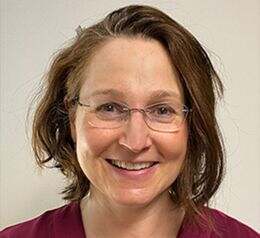4th World Congress on
Advances in Mental Health and Psychiatry
THEME: "Frontiers in Mental Health and Psychiatry Research"
 23-24 Mar 2026
23-24 Mar 2026  London, UK
London, UK THEME: "Frontiers in Mental Health and Psychiatry Research"
 23-24 Mar 2026
23-24 Mar 2026  London, UK
London, UK 
University of Minnesota, United States
Title: TBA
Sabine P. Schmid, PhD, is a clinical psychologist and associate professor in the Department of Psychiatry and Behavioral Sciences at the University of Minnesota. Her work is located within the Mood Disorders Program, which investigates and provides novel interdisciplinary interventions for depression. Her research focuses on the integration of cognitive-behavior therapy with emerging biological interventions.
Her clinical care approach is evidence-based with a core foundation in Cognitive Behavior Therapy and integrated with mindfulness and acceptance-based techniques. In addition to her involvement in clinical care and research, she currently directs her department’s Psychology and Behavioral Sciences Education programming and leads interprofessional education efforts for trainees across disciplines.